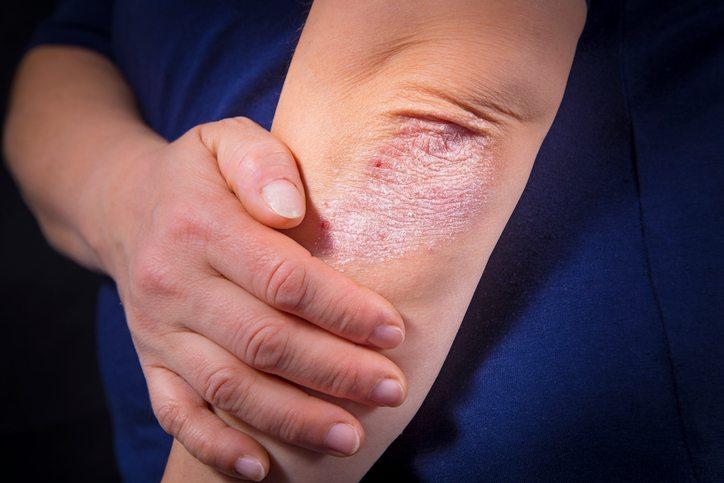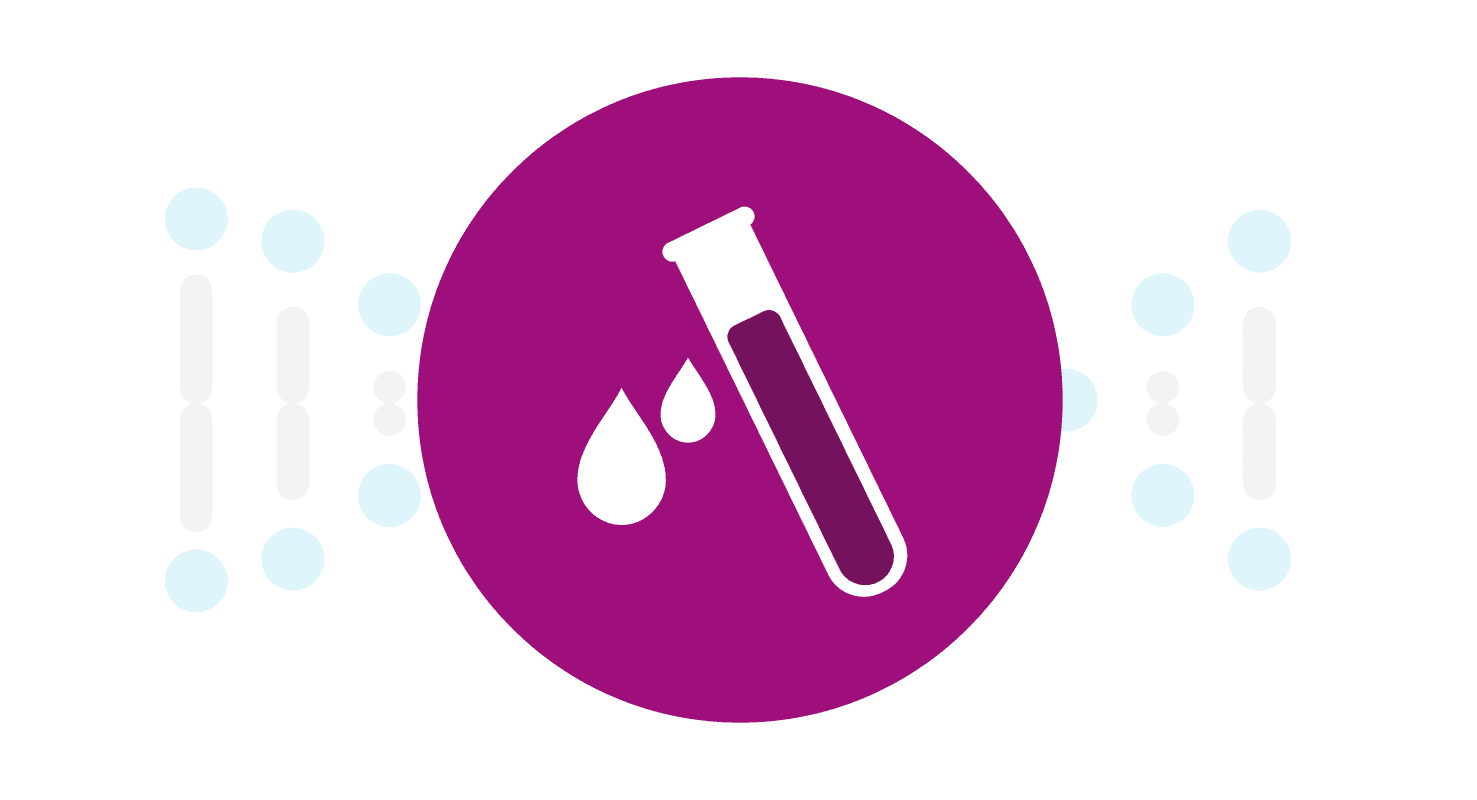This week, we released a new report powered by 23andMe Research on Psoriasis for 23andMe+ Premium members.
The autoimmune condition is characterized by discolored, itchy, and scaly patches of skin often seen on the knees, elbows, and scalp. Symptoms can also occur in other areas of the body, such as the torso, palms, and soles of the feet. In its mildest form, psoriasis can be a nuisance. But in severe cases, the condition can be painful and sometimes unsightly.
Psoriasis is chronic and symptoms may come and go throughout a person’s life. Such things as stress, intense sun exposure, infections, or skin injuries can trigger flare-ups.
The condition is estimated to affect about 3 percent of people in the United States.

More About Psoriasis
Psoriasis is often confused with another skin condition, eczema. Both can trigger skin irritation but eczema, also referred to as atopic dermatitis, is more often characterized by itchy, dry, and or discolored skin. Eczema shares genetic associations with allergies and asthma. Psoriasis on the other hand, has genetic associations with genes involved with the body’s immune response.
Like eczema, psoriasis can be itchy, but symptoms are more associated with a stinging or burning sensation, and more inflammation of the skin. Psoriasis also typically includes thickening patches on the skin, called “plaques.” In addition, the condition sometimes includes areas of skin that are covered in silvery-white scales that flake off.

A New Report
The new 23andMe+ Premium report, which is powered by data from consented 23andMe research participants, uses machine learning techniques to estimate an individual’s likelihood of developing psoriasis.
To make the estimate for the likelihood of developing psoriasis we use a statistical model that includes more than 7,500 genetic markers as well as information on an individual’s ethnicity and birth sex. Our researchers also verified that the model meets our scientific standards for individuals of European, Hispanic/Latino, East/Southeast Asian, South Asian, Sub-Saharan African/African American, and Northern African/Central & Western Asian descent. Your Psoriasis result also takes into account the birth sex you indicated in your account settings.
Taking Action
There is no cure for psoriasis, but there are several promising treatments and ways to manage the condition. Healthy lifestyle habits — limiting alcohol, avoiding smoking, and managing stress — can lower the chances of developing psoriasis, as well as reduce the frequency and severity of flare-ups.
Medications used to treat the condition vary depending on whether the condition is “systemic” meaning it affects the whole body, or “localized,” meaning it only affects an isolated area of the skin.
Beyond the physical symptoms, psoriasis is also associated with anxiety, depression, and low self-esteem. This is in part because the condition carries a stigma because of the misconception that it is contagious, even though it’s not. (23andMe does not report on contagious conditions.) Beyond that, the appearance of the condition and chronic discomfort can be isolating.
Learn More
23andMe’s new Psoriasis Report (Powered by 23andMe Research) is available to all 23andMe+ Premium members. To view your report, go here.
Not yet a 23andMe+ Premium member?
Find out more about our 23andMe+ Premium membership here.




